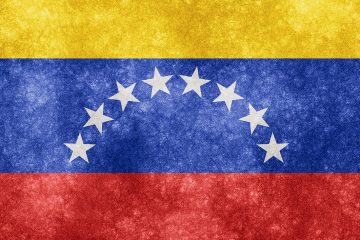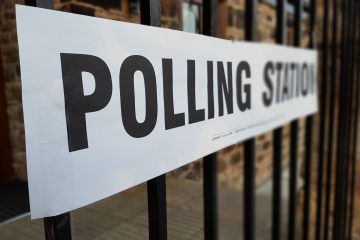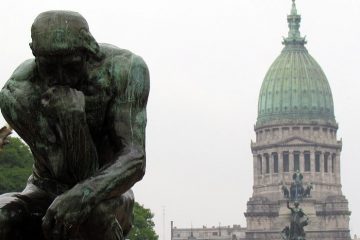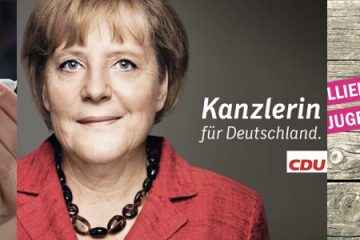
Four Myths about Orbán’s Hungary
Even though Hungarians vote this Sunday, April 8th, this piece is not on the Hungarian parliamentary elections per se. Whilst the initial idea was to write a short summary of the state of the opposition to prime minister Viktor Orbán, I had to quickly realize that the average Western news consumer hardly knew anything about Hungary. Hence presupposing very little knowledge about the ins and outs of Hungarian politics, I will try to challenge some of the assumptions and myths extolled in recent news articles on the Hungarian elections by giving you some additional, contextual information. Myth #1: Hungary is an outright illiberal state Despite their thoroughly liberal roots, Fidesz – the larger party in the current government coalition in …

Costa Rica’s Election: How an Evangelical Singer Might Become President
On February 4th, Costa Ricans defied predictions by giving Fabricio Alvarado Muñoz from the Partido Restauración Nacional (PRN) the most votes. With 24,99%, he won ahead of Carlos Alvarado Quesada from the governing Partido Accion Ciudadana (PAC) with 21,63%. As no candidate overcame the 40% requirement to outright win on the first round, these two candidates are now facing each other in the run-off election on April 1st. This outcome represents a remarkable reversal of fortunes, as none of the two candidates surpassed 7% in the polls one month before February’s first round election. How did Alvarado Muñoz, an evangelical singer, who puts his religion front and center, come to lead in the polls going into Sunday’s run-off election? Upending …

From the Parole Guerriere to Electoral Success: Italy’s Five Star Movement
The Five Star Movement is one of the most interesting political ‘experiments’ on political landscape of Western democracies. Once again Italy, which with Berlusconi has experienced Trumpism before Donald Trump, is a political laboratory for novel political phenomena that the world looks at, with a mixture of concern and excitement, to learn something about the future of our democratic systems. Only five years ago Beppe Grillo, a stand-up comedian and the founder of the Five Star Movement (M5S), launched his parole guerriere (warlike words) and M5S obtained a remarkable 25% of the national vote in its first electoral showing. Italian voters again expressed loudly and clearly their preference for the Five Star Movement in last weekend’s general election. The M5S not …

Will Venezuela transition to democracy this year?
On May 20th, Venezuelans are supposed to vote in a presidential election to decide over the fate of their crisis and conflict ridden country. Despite being nominally given the opportunity to choose, the way the Maduro government has set up the electoral process, committed fraud, repressed the opposition and systematically undermined the process of free and fair elections over the past years, all but guarantees authoritarian durability. This article addresses why a) a highly unpopular incumbent is likely to hold onto power, b) the opposition is justified in their decision to boycott the elections and c) how Venezuela might transition to democracy. Venezuela has transitioned from a weak democracy in 1998 to a failing dictatorship in 2018. Over the past …

General election 2017: votes from anywhere
Some six months before Theresa May called a surprise general election, The Road to Somewhere was published. In it, David Goodhart argues that the old political divide, between left-wingers and right-wingers, has been superseded. The electorate, Goodhart claims, is now better divided between “anywheres” and “somewheres”. Peter Wiggins looks at the Goodhart argument in the context of the 2017 general election. Of “Anywheres”, “Somewheres” and “Inbetweeners” According to The Road to Somewhere, roughly 25% of the population are “anywheres” – they are mobile, metropolitan, liberal, tolerant, at home wherever they may be, and wary of group attachment. These voters are likely to be highly educated, and they tend to approve of “mass immigration,” subscribing, as Goodhart puts it, to “progressive …

Argentina’s Midterm Elections: A Forecast
On Sunday, Argentina will hold highly significant midterm legislative elections in its 23 provinces as well as the federal capital of Buenos Aires. Cambiemos (Let’s Change), headed by the centre-right incumbent President Mauricio Macri, will look to expand its political mandate as the first non-Peronist government in 16 years. While seats will be up for grabs throughout the country, observers have placed most of their focus on the Senate race in Buenos Aires province, a predominantly working class region of Argentina that holds nearly 40 percent of the national electorate. Here, Macri’s current Minister of Education, Esteban Bullrich, is competing against former President Cristina Fernandez de Kirchner, who assumed office in 2007 as part of the Peronist ‘Front for Victory’ …

Reset, Rethink, Restart: The Opposition’s only way out in Venezuela
In early hours of Monday, October 17th, after the announcement of the results of the regional elections, the Venezuelan opposition decried foul play and electoral fraud. Such accusations of course are very hard to prove in any case, and even more so in today’s authoritarian Venezuela. Yet, what’s done is done. The regime announced to have won 18 governorships, while the opposition appears to have only won five. Even if the fraud accusations were true, the only certainty, as of today, is that – although 83% of Venezuelans rejected President Maduro’s government as of August 2017 – Venezuela’s political map is still dominated by Chavismo. This latest episode of contested elections adds to the already high levels of political conflict …

What a probable Jamaica coalition means for possible cannabis legalisation in Germany
On September 24th, Germans elected a new parliament. The CDU/CSU won 32.9%, the SPD 20.5%, the AfD 12.6%, the FDP 10.7%, the Green Party 8.9%, Die Linke 9.2%. This outcome, resulting in the presence of six parties in the Bundestag, will complicate the formation of a new governing coalition. The right-wing Alternative für Deutschland (AfD) will enter the German Bundestag for the first time, but is politically shunned by other parties. Die Linke is ideologically too far removed from the Conservatives to ever govern with them. The once proud and mighty German Social Democrats (SPD) have been humbled by the election. In consequence, the Social Democrats have announced their intention to go into opposition. Angela Merkel’s Christian Democrats (CDU/CSU), while …









